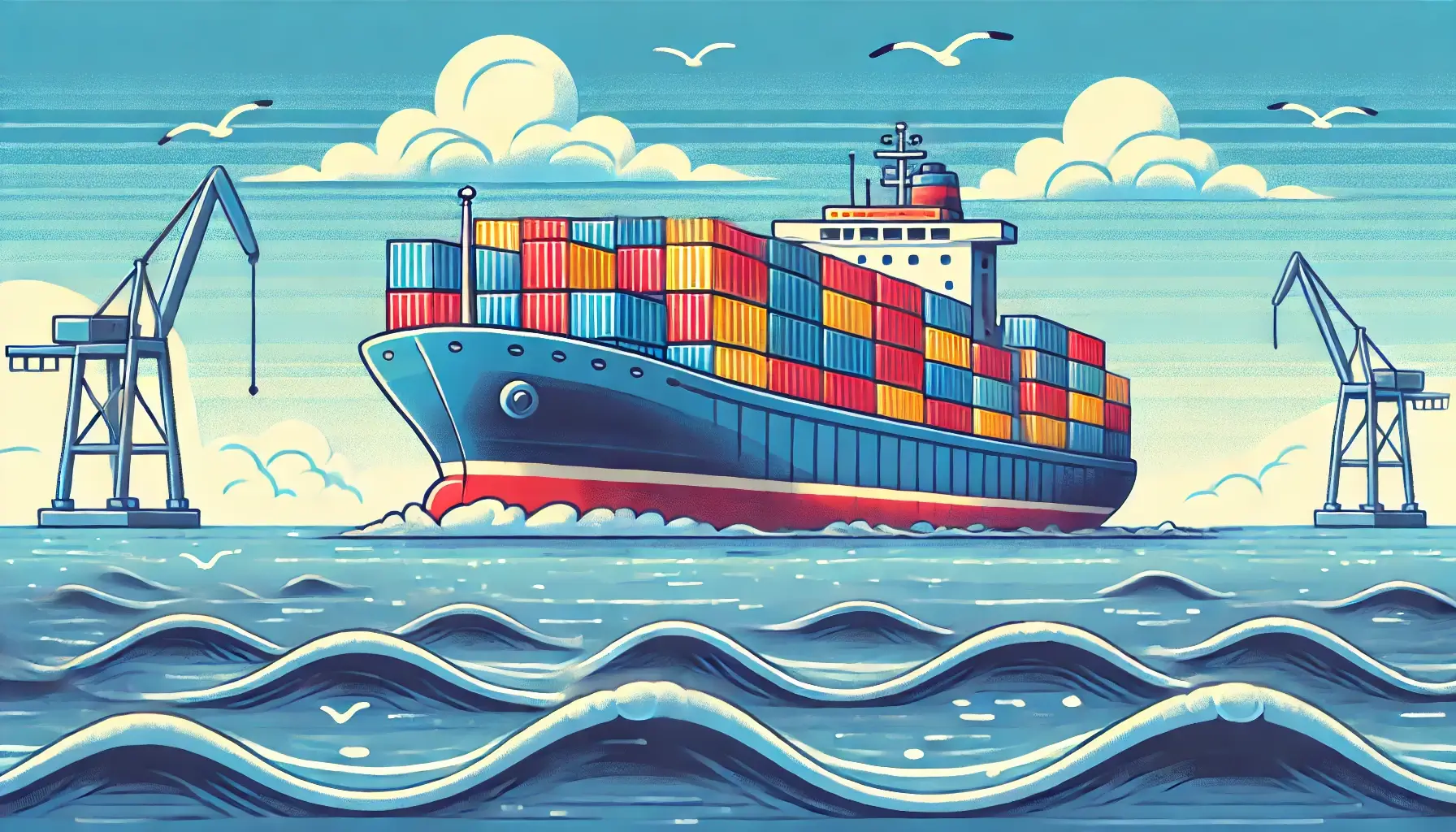
Rena Monrovia When You Transport Something by Car …
“Rena Monrovia when you transport something by car …” is a phrase that may catch your attention, but its full meaning is far deeper than it seems at first glance. While transporting items by car is often considered a simple task, there’s much more to it when you want to ensure safety, efficiency, and reliability. Whether you’re moving personal belongings, delivering packages, or transferring valuable goods, every aspect of the process must be carefully thought out.
In this article, we will unravel the significance of “Rena Monrovia when you transport something by car …” and how it ties into the complexities of vehicle transport. We’ll also explore the key steps involved in making sure your cargo is secure and your journey smooth. Stay tuned to discover why this phrase is relevant and what you need to know about successful car transportation.
What Does “Rena Monrovia When You Transport Something by Car …” Mean?
The phrase “Rena Monrovia when you transport something by car …” might initially sound confusing, but it appears to be a misinterpretation or an amalgamation of different keywords drawn from various contexts. By breaking down the terms “Rena” and “Monrovia,” we can explore how this phrase might have originated and what it could signify in both maritime and land-based transportation settings.
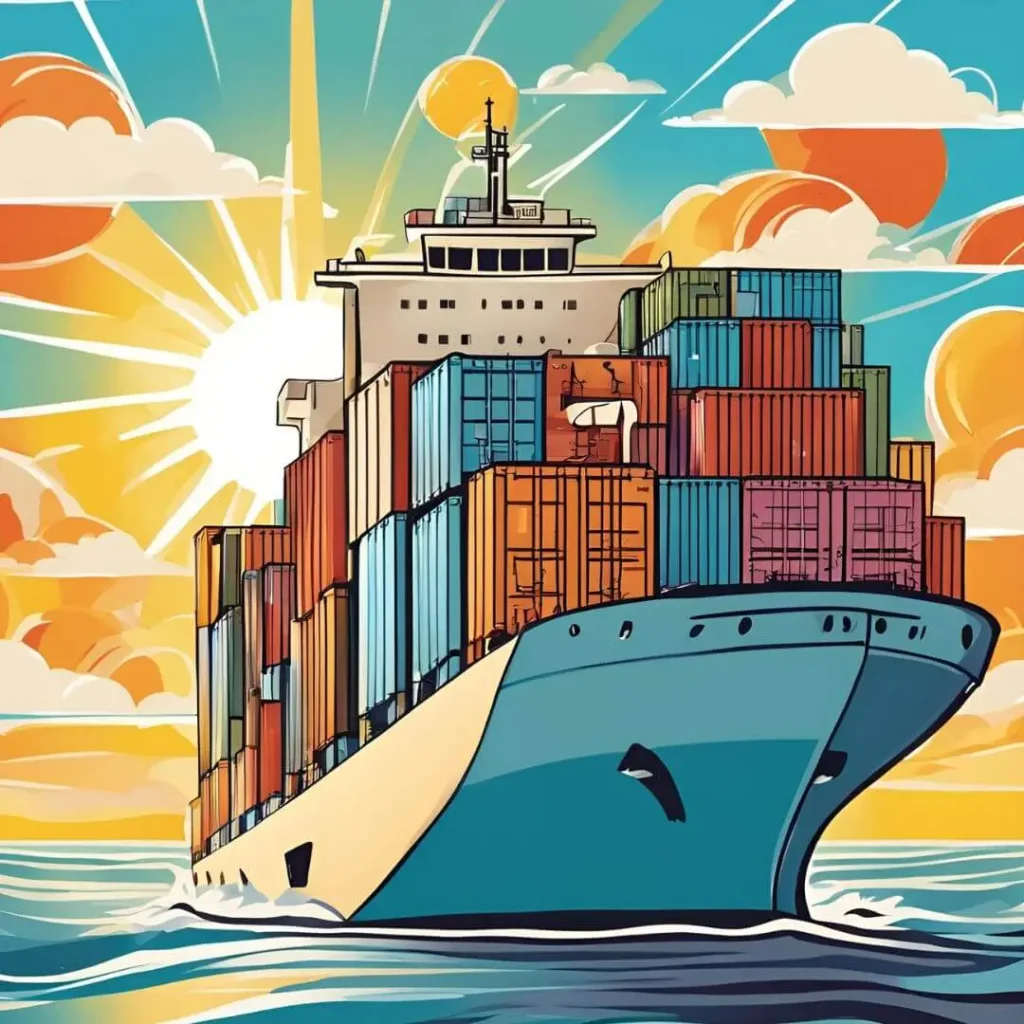
Understanding “Rena Monrovia”
The confusion likely stems from the well-known incident involving the MV Rena, a container ship registered under the flag of Monrovia, Liberia, that ran aground off the coast of New Zealand in 2011. This environmental disaster put the ship and its registration system, known as a “flag of convenience,” in the spotlight.
Monrovia, the capital city of Liberia, is widely recognized as a hub for ships registering under this system, where foreign-owned vessels register in Liberia to avoid stricter safety and environmental regulations in their home countries.
However, the connection to car transportation is less direct and may stem from unrelated search engine results combining maritime and land transportation terms.
The Role of Monrovia in Global Shipping
Monrovia’s significance in global transportation primarily lies in its open ship registry. Liberia is one of the world’s largest flag registries, allowing foreign vessels to fly its flag in exchange for fewer regulatory restrictions. This practice helps shipping companies reduce operating costs but has often been criticized for lowering safety standards, as seen in cases like the MV Rena disaster.
When we look at the term “Monrovia” in the context of transportation, it is more closely tied to maritime logistics than to car transportation. However, Monrovia is also a growing city in Liberia where various land-based transportation services, such as car logistics, play an essential role in the country’s infrastructure.
You may also like: 529 Plan
Car Transportation in Monrovia
If we shift our focus from the maritime connection to car transportation in Liberia, we find that the phrase could refer to a company like “Rena Monrovia” providing car transportation services within the city of Monrovia or beyond. Given the expansion of commerce and travel in the region, there is a growing demand for reliable vehicle transportation.
A business named “Rena Monrovia,” if it exists, would likely offer car transportation services such as moving vehicles for business or personal purposes across different regions. Services like these help people relocate, ship vehicles for trade, or transfer cars for business activities, and companies operating in Monrovia could focus on making this process smooth and efficient.
A Case of Keyword Confusion
In reality, the phrase “Rena Monrovia when you transport something by car” seems to be a result of keyword confusion. The term “Rena” from the maritime world was likely mixed with “Monrovia,” the capital city of Liberia, and recontextualized into car transportation due to unrelated search queries. This type of confusion is common when search engines try to combine multiple concepts that are topically similar but contextually different.
Types of Services Offered by Rena Monrovia
Rena Monrovia is likely to provide a comprehensive selection of transportation services, each designed to accommodate varying client requirements. Here are some of the key services they may offer:
- Local Vehicle Transportation: Rena Monrovia may focus on efficiently transporting vehicles within Monrovia and surrounding areas. Whether for personal use, ride-sharing, or business needs, they may support the movement of cars throughout local regions.
- Long-Distance Transportation: If a vehicle needs to be transported between cities or even across borders, Rena Monrovia could offer long-distance transport solutions. This service may include managing logistics, such as customs procedures and regulatory requirements, ensuring a smooth process for clients.
- Specialized Transport Solutions: For individuals or businesses needing to transport unique or high-value vehicles, like luxury cars, classic models, or industrial machinery, Rena Monrovia may offer specialized transportation services, ensuring safe and secure handling of these assets.
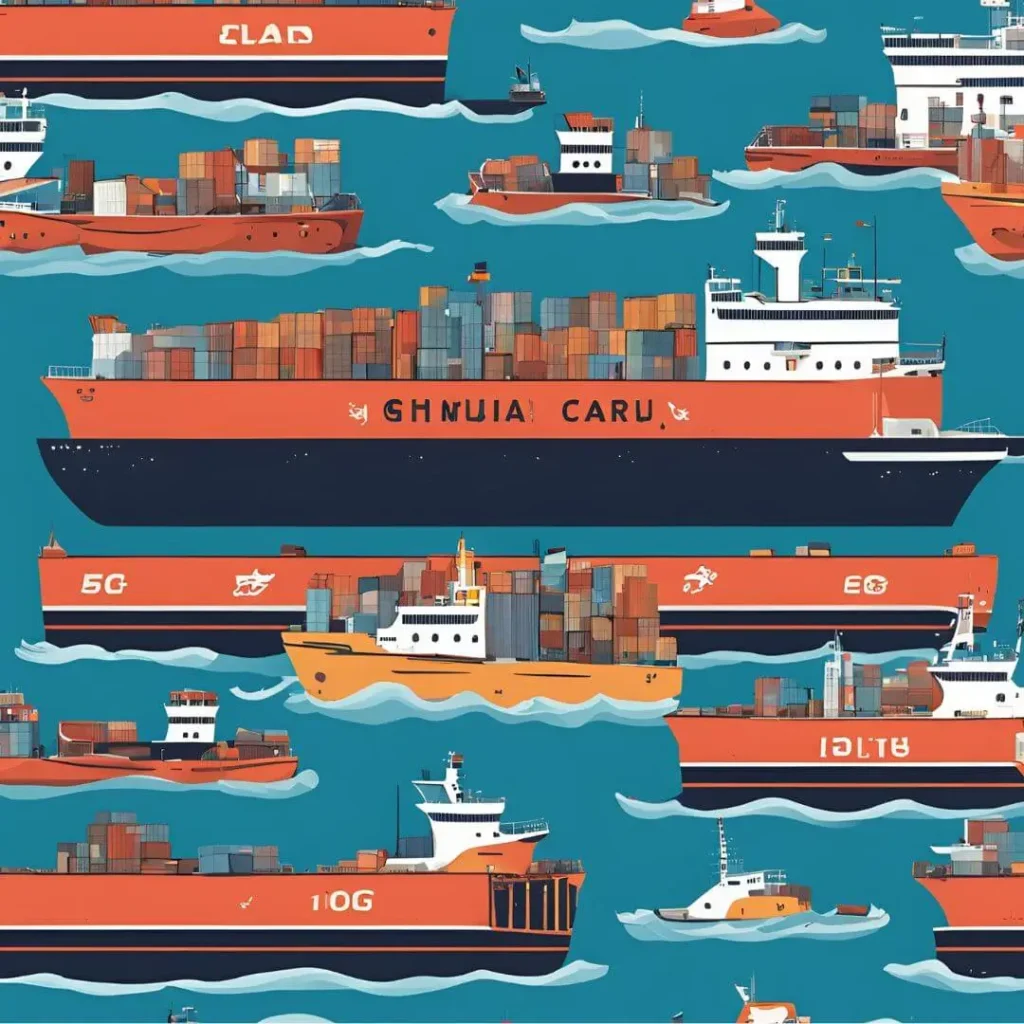
How Does Rena Monrovia Operate?
Rena Monrovia is a well-established vehicle transportation service known for providing a seamless and efficient process for moving cars across distances. Whether you’re relocating, selling a vehicle, or simply need your car transported, Rena Monrovia offers a reliable and customer-friendly solution.
Here’s an overview of how the process works, with clear steps to ensure your vehicle is handled with care from start to finish.
1. Requesting a Quote
The first step to using Rena Monrovia’s services is to request a quote. This can be done easily via their website or through a toll-free number. Customers are asked to provide essential details about the vehicle, including its make, model, and location, as well as the desired destination.
With this information, Rena Monrovia can quickly generate an all-inclusive quote in just a few minutes. This transparency and speed ensure that potential clients have a clear understanding of the costs involved before moving forward.
2. Scheduling Pickup and Delivery
Once the quote is agreed upon, the next step is scheduling the transportation. Rena Monrovia is known for its flexibility in scheduling, accommodating the needs of each client. Customers can select pickup and delivery dates that fit their schedule.
Depending on the client’s preference, they may choose between open or enclosed transport options, ensuring their vehicle gets the appropriate level of protection during the journey.
3. Vehicle Preparation
Before your vehicle is picked up, Rena Monrovia provides clear guidelines on how to prepare it for transport. Personal belongings should be removed from the car, and it is recommended that the gas tank be left only a quarter full.
Any prior damage should be noted, and photos are encouraged to ensure proper documentation. These steps help ensure a smooth transportation process and reduce any potential risks during transit.
4. Real-Time Tracking and Updates
During the transportation process, Rena Monrovia keeps customers informed with real-time tracking updates. This feature allows you to monitor your vehicle’s journey, providing peace of mind that it is on schedule and being handled with care. This level of transparency is a key aspect of the service, offering reassurance to customers throughout the process.
5. Delivery and Inspection
Upon arrival at the destination, the vehicle is inspected to ensure it has been delivered without damage. Customers are encouraged to review the car and confirm that everything is in the same condition as it was when it was picked up. Once satisfied, the vehicle is handed over, completing the transport process.
How Rena Monrovia Makes Transportation of Cars More Secure?
Transportation safety is critical, especially when handling valuable or delicate cargo. Rena Monrovia when you transport something by car …, provides crucial insights into ensuring that your items arrive safely.
With over 50 years of expertise, Rena Monrovia offers proven strategies to ensure that items are transported securely and efficiently, whether on the road or by sea. Below, we explore how Rena Monrovia’s guidance on vehicle selection, cargo securing, safety practices, and emergency preparedness contributes to more secure transportation experiences.
1. Preparation is Key: Ensuring Safe Transport from the Start
Effective transportation begins with thorough preparation. Rena Monrovia emphasizes that planning your transport process is the cornerstone of safe and secure cargo delivery.
Before loading anything into a vehicle, drivers should assess the vehicle’s suitability for the job. The weight and size of the cargo should match the vehicle’s capacity. Using a vehicle that’s too small or overloaded increases risks, such as difficulty controlling the car or damage to the cargo.
Key Considerations:
- Vehicle Suitability: Is the vehicle the right size for the items? Can it handle the weight? Choose an appropriate vehicle that ensures secure transport.
- Cargo Preparation: Delicate items should be wrapped in protective materials like bubble wrap, blankets, or other cushioning. Heavier items need to be secured tightly using straps or bungee cords to prevent movement.
2. Vehicle Selection: Choosing the Right Vehicle for the Job
The right vehicle is critical for safe transportation, as recommended by Rena Monrovia. Depending on the load type and size, vans or enclosed trucks may work best for most items, while bulkier cargo might need an open truck.
Thorough vehicle inspections, including tire pressure, fluid levels, and lights, are crucial to avoid unexpected issues during transport. Drivers should also be familiar with the vehicle’s features to handle any sudden problems that may arise.
3. Securing Your Cargo: Minimizing Movement and Damage
Properly securing cargo is one of the most essential steps to ensure safety. Rena Monrovia when you transport something by car…, Stresses that items should be anchored firmly with high-quality straps, ropes, or cargo nets.
Delicate items require additional padding to prevent damage. It’s vital to distribute weight evenly within the vehicle to prevent uneven stress on tires and suspension, which could lead to accidents or difficulties controlling the vehicle.
Securing Tips:
- Heavy-Duty Straps and Ropes: These can firmly anchor items, reducing movement during transit.
- Cross-strap Placement: Position straps at 45-degree angles to ensure maximum hold and security.
- Cargo Barriers: Install dividers between the rear passenger area and cargo space to prevent items from flying forward in sudden stops.
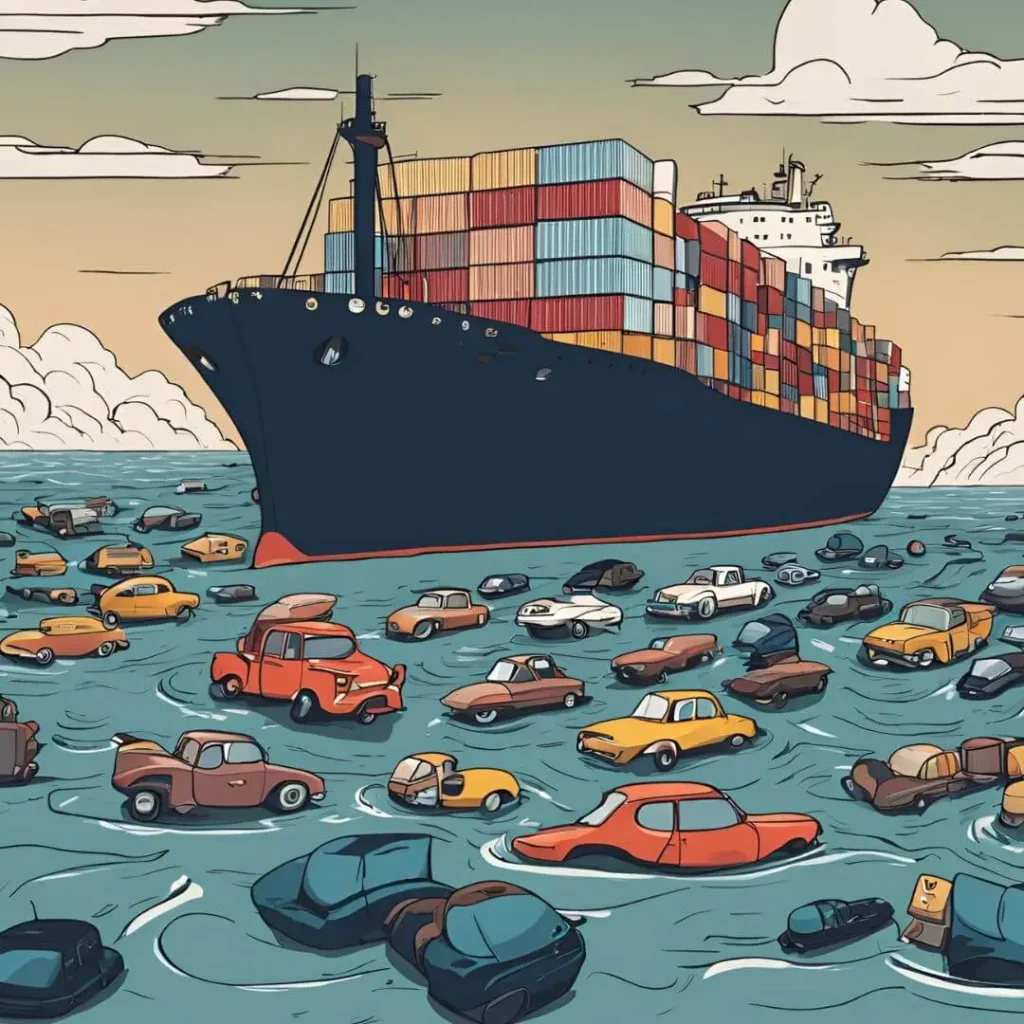
4. Balancing Weight Distribution for Stability
Rena Monrovia advocates for balanced weight distribution as a core element of safe transportation. Heavy items should be positioned lower to the vehicle’s floor, keeping the center of gravity low. This ensures that the vehicle remains stable during sharp turns or sudden stops, reducing the risk of accidents caused by shifting cargo.
Weight Distribution Guidelines:
- Load Centering: Heavier objects should be closer to the center of the vehicle.
- Even Distribution: Distribute weight evenly to reduce wear and tear on tires and prevent the vehicle from tipping or swaying.
5. Protecting Cargo with Covers: Preventing Damage
Protective coverings are an additional line of defense against potential damage. Rena Monrovia when you transport something by car, recommends using tarps, blankets, or other coverings to shield items from the elements or accidental damage. This is especially important when transporting fragile or sensitive items, where a minor scratch or dent could significantly diminish value.
6. Performing Pre-Departure Checks: Ensuring Readiness
Before embarking on any trip, Rena Monrovia advises performing comprehensive pre-departure checks. Drivers should inspect the condition of storage containers, tie-down systems, and protective coverings. Additionally, vehicle health checks—including tire pressure, fluid levels, and brake functionality—should be completed to ensure a smooth and safe journey.
Checklist for Pre-Departure:
- Inspect Cargo Tie-Downs: Ensure that all straps and nets are securely fastened.
- Check Protective Coverings: Make sure that tarps or blankets are in place and undamaged.
- Verify Vehicle Condition: Tires, lights, and fluids should all be in good condition.
7. Planning Your Route: Minimizing Risks on the Road
Route planning is another aspect where Rena Monrovia’s expertise enhances transportation safety. Researching routes in advance allows for better navigation and avoids delays caused by traffic congestion, road construction, or weather-related obstacles. Planning for alternative routes and leaving extra time for unforeseen circumstances adds a buffer for safe and timely delivery.
8. Ensuring Legal Compliance: Adhering to Regulations
Compliance with transportation laws is crucial to avoid penalties or fines and to ensure overall safety. Rena Monrovia when you transport something by car … Emphasizes the importance of obeying speed limits, weight restrictions, and other traffic laws. Drivers should be aware of specific cargo regulations in their area, such as height restrictions or required safety flags for oversized loads.
9. Handling Specialized Items: Tailoring the Transport Process
Rena Monrovia’s solutions extend to specialized cargo, such as fragile or high-value items. For electronics, reinforced packaging and internal braces protect against movement. Bulky or oddly shaped items may require custom-fitted crates or open-top trucks with specialized securing systems.
10. Implementing Emergency Preparedness: Ready for the Unexpected
Despite thorough preparation, unforeseen emergencies can arise. Rena Monrovia when you transport something by car … Advocates for having an emergency kit on hand, knowing basic vehicle repair skills, and having access to roadside assistance.
In addition, drivers should be equipped with a plan for handling breakdowns or other emergencies, ensuring that safety remains a top priority throughout the journey.
Essential Emergency Items:
- Roadside Emergency Kit: Include items such as jumper cables, a flashlight, and basic tools.
- Emergency Contacts: Have the contact information of local roadside services available.
- Backup Plans: Be prepared to adjust travel plans if needed due to weather or vehicle issues.
11. Monitoring Weather Conditions: Adjusting Plans for Safety
Weather conditions can have a significant impact on transportation safety. Rena Monrovia recommends closely monitoring weather forecasts before and during the journey. In cases of heavy rain, snow, or high winds, it’s better to delay the trip than risk safety. Planning alternate routes that avoid hazardous weather conditions can help ensure a safer journey for both the driver and the cargo.
12. Maintaining Driver Focus: Staying Alert on the Road
Driver responsibility is at the core of safe transport. Rena Monrovia emphasizes the importance of staying focused and avoiding distractions like using mobile devices. Regular stops should be scheduled for rest, ensuring that the driver remains alert and capable of handling the vehicle effectively.
13. Regular Stops for Rest and Cargo Inspection
Long trips can be draining, both for drivers and cargo. Rena Monrovia advises regular stops not only for rest but also to inspect the cargo and make sure that it’s still secure. This practice prevents load shifts and reduces the risk of accidents caused by tired or distracted driving.
14. Securing Loose Items Inside the Vehicle
Loose items inside the car can become dangerous projectiles during sudden stops. Rena Monrovia stresses the importance of securing loose objects such as bags, boxes, or tools. This minimizes distractions for the driver and reduces the risk of accidents or damage caused by flying items.
15. Prioritizing Safety Above All Else
Above all, Rena Monrovia focus on the importance of safety in every aspect of the transportation process. From selecting the right vehicle to securing cargo, planning routes, and preparing for emergencies, a proactive approach ensures the safe arrival of goods and passengers. By following these guidelines, drivers can reduce the risks of accidents and damage, making transportation safer and more secure for everyone involved.
How Did the MV Rena Oil Spill Happen?
On October 5, 2011, the MV Rena caused a major oil spill, when the cargo vessel ran aground on the Astrolabe Reef near Tauranga, New Zealand. The incident resulted from a combination of navigational mistakes and poor judgment. The crew had not properly updated their navigational charts, and the captain chose to take a risky shortcut to save time.
Navigating at high speed through a reef-filled area under poor visibility conditions, the ship struck the reef, tearing open its hull and spilling large amounts of oil into the ocean.
Following the collision, the captain and first mate’s decisions came under investigation, as they were aware of the navigational hazards but pressed on regardless. This error in judgment caused approximately 350 tons of heavy fuel oil to leak into the surrounding waters, leading to one of New Zealand’s most severe maritime environmental disasters.
The environmental impact was widespread, with the oil spill contaminating coral reefs, harming marine wildlife, and damaging seabird habitats. Economically, the spill had far-reaching consequences, severely affecting the local fishing industry and tourism sector, and cleanup efforts continued for years at great expense. The MV Rena oil spill serves as a significant example of how human error can lead to disastrous outcomes at sea.
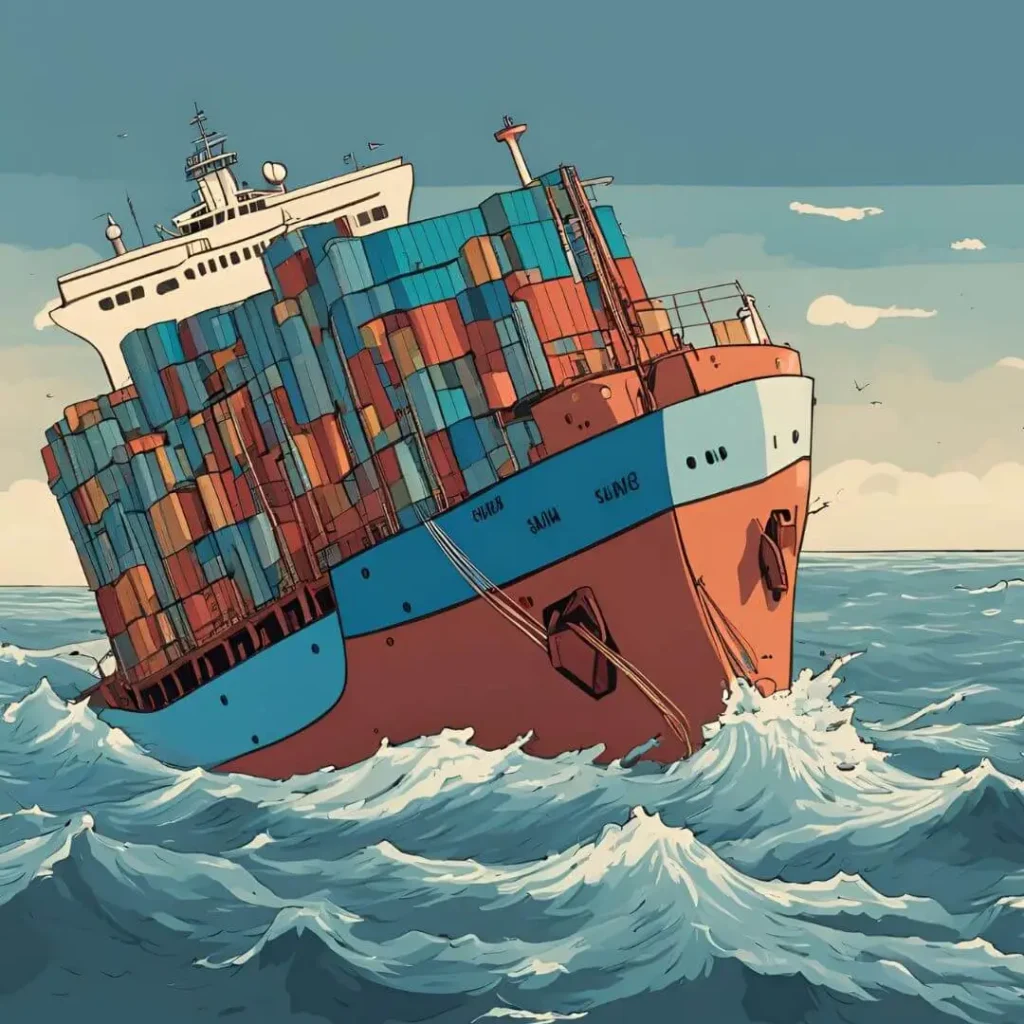
Common Challenges and Solutions by Rena Monrovia When You Transport Something by Car
When transporting items by car, there are various obstacles you may face. One of the most common challenges is dealing with adverse weather, which can make driving conditions difficult and increase the risk of accidents or delays. To counter this, always check the weather forecast before your trip and adjust your plans accordingly. If severe conditions are expected, consider postponing your journey or rerouting to avoid hazardous areas.
Mechanical problems can also pose a significant issue. It’s essential to regularly maintain your vehicle, ensuring the tires are properly inflated, the brakes are functioning, and all fluids are topped up. In case something goes wrong, having an emergency kit that includes a spare tire, tools, and jumper cables can be a lifesaver. Familiarizing yourself with basic car repairs can prevent minor issues from becoming major setbacks.
Unexpected delays, such as traffic congestion or road closures, are another challenge that can disrupt your trip. Planning ahead by mapping out alternative routes and leaving extra time in your schedule can help minimize frustration and keep you on track.
Preparation and foresight are key to overcoming these challenges. By staying alert and adaptable, you can ensure a smoother, more successful transport experience.
Why Should You Choose Rena Monrovia?
When deciding on a vehicle transportation service, Rena Monrovia stands out as an excellent option for several reasons.
- Extensive Experience: Operating in the busy city of Monrovia, Rena Monrovia has developed a solid understanding of logistics and safety protocols. Their expertise in navigating the unique challenges of vehicle transport ensures smooth, efficient deliveries.
- Specialized Expertise: Transporting vehicles safely is no easy task, but Rena Monrovia brings expertise in handling a variety of vehicles. From secure loading methods to skillfully navigating difficult terrains, they have mastered the nuances of the industry.
- Commitment to Safety: Rena Monrovia emphasizes the safety and protection of your vehicle during transport. With a focus on preventing damage and offering enclosed transport options, they show a dedication to delivering your vehicle in the same condition it was sent.
- Timeliness: In any transportation service, time is of the essence. Rena Monrovia prioritizes delivering vehicles on schedule, ensuring that whether you need your car for personal use or business purposes, it arrives when you need it.
- Insurance and Protection: Each vehicle transported by Rena Monrovia is covered by comprehensive insurance, offering customers peace of mind. If any damage occurs, you’re fully protected, a level of assurance that many competitors do not offer.
- Real-Time Tracking: To ease any concerns during transport, Rena Monrovia offers a real-time tracking system. You can monitor your vehicle’s journey from the moment it’s picked up until it reaches its final destination, ensuring full transparency and peace of mind.
Choosing Rena Monrovia means selecting a reliable, experienced, and customer-focused service that puts the safety of your vehicle first.
Frequently Asked Questions – FAQs
What is the typical duration for vehicle transport?
Transport times vary by distance. International shipments generally take 7-10 days, while regional deliveries can be completed in 2-3 days.
Is vehicle insurance provided during transport?
Yes, full insurance coverage is provided for all vehicles during transport to ensure protection against potential damages.
Is it legal to carry personal belongings in the car during transport?
No, it is advised not to leave personal belongings in the vehicle, as it can pose safety risks and impact insurance coverage.
What payment methods are accepted for transportation services?
You can pay for transportation services via credit cards or bank transfers, offering secure and convenient payment options.
Can inoperable vehicles be transported?
Yes, Rena Monrovia can handle the transport of inoperable vehicles, but this may involve an additional fee due to the extra handling required.
How do I ensure that my vehicle is secure during transport?
Make sure to use quality securing materials, such as straps, and check the vehicle periodically during transport to ensure it remains stable.
What should I do to prepare my vehicle for transport?
Begin by assessing the vehicle’s condition, ensuring it is clean, and removing any personal belongings. Check for leaks or mechanical issues that could affect transport.
What happens if my vehicle gets damaged during transport?
If damage occurs during transport, document the issue immediately, contact your insurance provider, and take steps to prevent similar incidents in future shipments.
Can advancements in technology improve vehicle transport?
Yes, innovations such as real-time tracking and automated vehicle systems are expected to make vehicle transportation more efficient and safer.
What are the legal implications of improper transportation?
Failing to comply with transportation regulations can lead to penalties or fines, depending on the type of cargo and local laws.
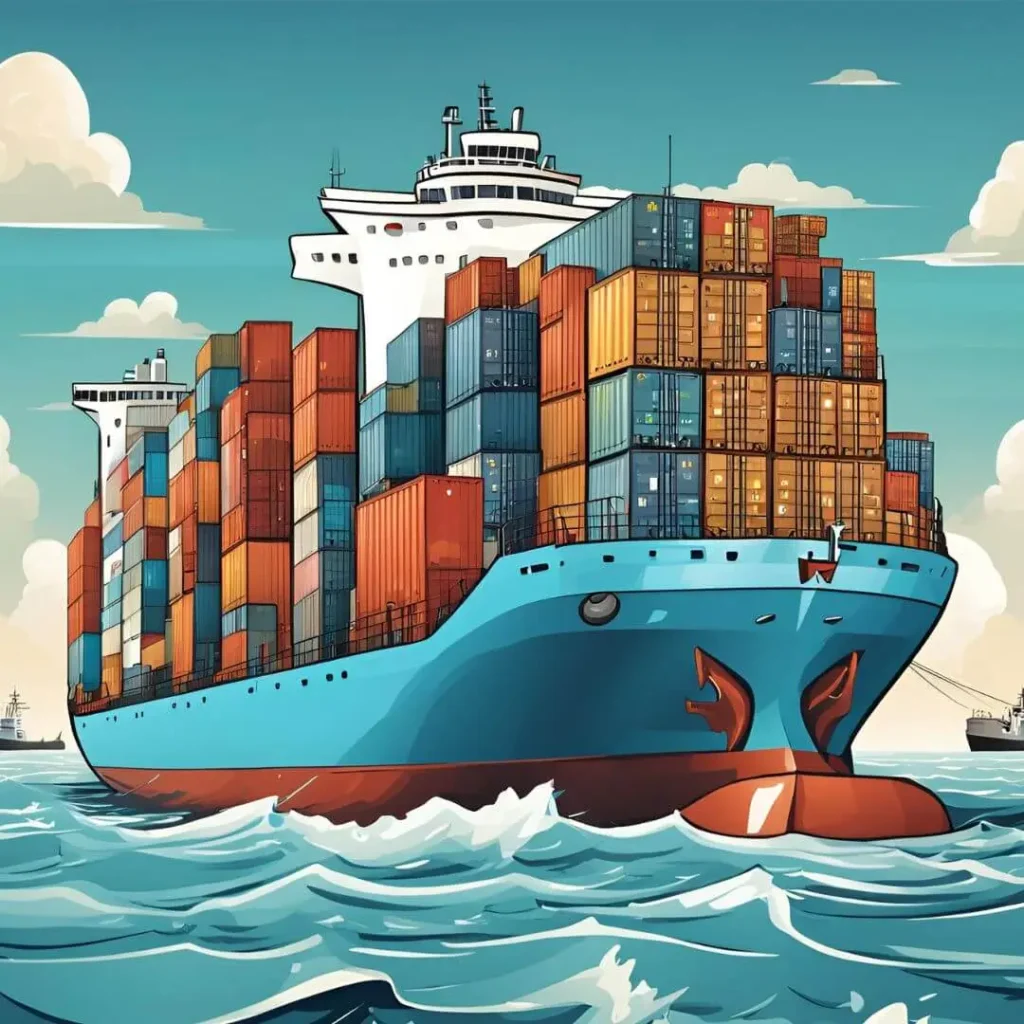
Conclusion
In conclusion, the phrase ” Rena Monrovia when you transport something by car …” highlights the importance of careful planning and execution in vehicle transportation. Although the phrase itself may have originated from a mix of unrelated search terms, it points to crucial insights into both maritime and land transportation, particularly the role Monrovia plays in global shipping.
Rena Monrovia appears to offer comprehensive car transportation services, prioritizing efficiency, safety, and customer satisfaction. From selecting the right vehicle to ensuring balanced cargo distribution, Rena Monrovia implements proven methods to guarantee the secure transport of vehicles. Additionally, their real-time tracking and customer support reinforce their commitment to transparent, high-quality service.
By emphasizing proper vehicle selection, securing cargo, and route planning, “Rena Monrovia when you transport something by car …” underscores how attention to detail ensures a smooth, hassle-free transportation experience. Whether moving vehicles locally or over long distances, companies like Rena Monrovia demonstrate the value of meticulous preparation and execution in making car transport both safe and reliable.




